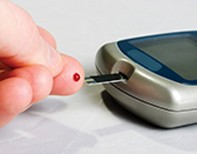A case of high stakes riding on results
Some patients will go to great lengths to get the results they need, as Dr Phillips recalls in this case of a man with diabetes.
Mr C, a taxi driver who had type 1 diabetes, had made an appointment with me so that I could complete his application for a commercial driving licence. Reluctantly, I had to tell him that I couldn’t state that his diabetes was well controlled because his A1c was 10.5%, indicating that his average blood glucose level was in the mid teens.
I said that I was sorry not to be able to sign the application form but that if his blood glucose control improved sufficiently I would be prepared to do so at a later date. We spent some time reviewing his insulin schedule, and I referred him to the diabetes centre for sessions with a diabetes educator and a dietitian.
Surprising result
About three months later, Mr C returned. He reported that his blood glucose levels had ranged between 4 and 8 mmol/L before meals over the past couple of months. I told him that if his A1c result confirmed this diabetes control, I would sign his driving licence application.
The next week I received the laboratory report, noting that Mr C’s A1c level was 5.0% (target, less than 7%; no diabetes, 4 to 6%). This surprised me, but I duly signed and posted his application.
Suspicions aroused
The next day I had second thoughts and asked the laboratory to check the blood group of Mr C’s A1c sample. The blood group was O positive; Mr C’s blood group, recorded several years earlier, was A minus.
I notified the local motor vehicles department of this finding and asked Mr C to have a second A1c test. I also asked the laboratory to check the blood group of the sample. However, Mr C didn’t have the test and I didn’t sign another licence application.
Low threshold for testing
I had been aware that patients sometimes tell health professionals what they want to hear. I’d also heard a female urologist joke that she told men that if they were having a prostate specific antigen test so they could get a ‘good’ number, they could have the number she would get for the test. However, this was the first occasion (to my knowledge) that a patient had arranged for a surrogate to have tests that had been ordered for him or her so the result would be a ‘good’ number.
Now I test the blood group of people who have a high stake riding on their A1c levels, and I have a low threshold for checking the blood group of specimens giving unusually ‘good’ numbers. MT

